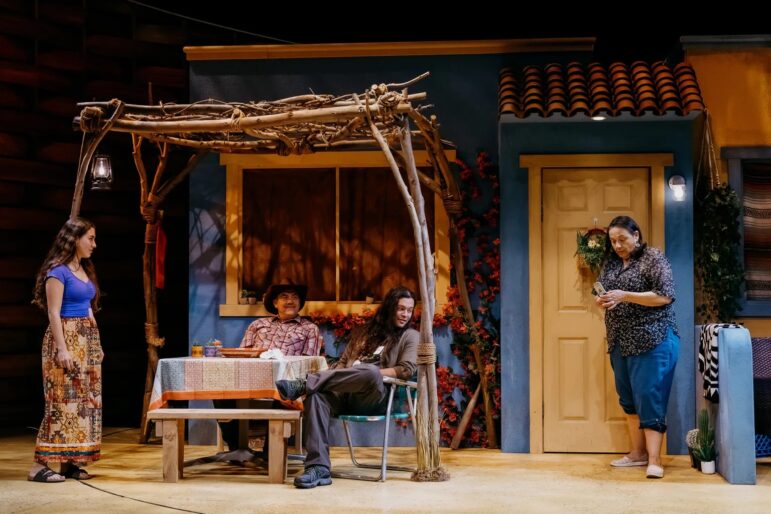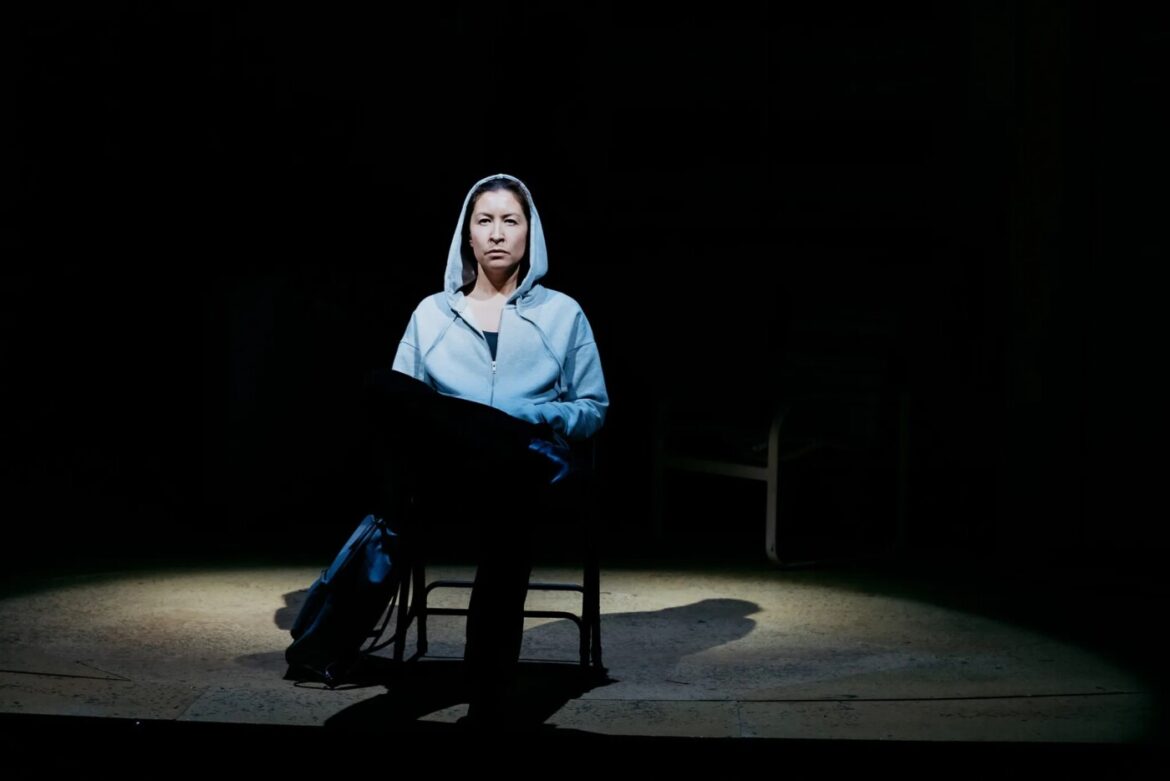If the principal character in your play is deeply troubled for the better part of two acts, no end in sight, and the audience must follow her bumpy journey over decades, you better have a really good actor to make the audience care.
And in Rainbow Dickerson, who plays the hard-core gambling addict Rocky in Claude Jackson Jr.’s new play “Cashed Out” onstage at San Francisco Playhouse, director Tara Moses does indeed have the right actor for the role.
She also has the right supporting cast for a play about three generations of basket-weaving women on a reservation in Arizona.
There’s sardonic, stalwart Aunt Nan (an unflappable Sheila Tousey), who holds the family together as best she can.
There’s good-guy Levi (Chingwe Padraig Sullivan), the neighbor and casino worker who is Rocky’s best friend—the one she can take advantage of.
There’s Rocky’s drug-addled mother (the always impressive Lisa Ramirez), who only appears (in living form) in the first scene, when Rocky, a potential basketball star, and Levi are kids.
And ultimately there is Rocky’s formerly alcoholic father (Matt Kizer) and Rocky’s own teenage daughter, Maya (Louisa Kizer).
The women of the Camu family are rightfully proud of their baskets, which are on display at the tribe’s casino. But that inherited gift is not enough to offset the difficulties of inherited trauma all the way down the line—at least, not for Rocky.

If this were a drama about just any old addict with a dysfunctional family, it might feel banal, depending on the depth of the characters, but here the environment itself feels like a character. To see, through the eyes of three generations, the ways in which this struggling family of Native Americans deals with the struggles and rewards of life on the reservation—and knowing what we know about how America’s indigenous people have been treated since America was colonized—adds to the poignancy of this family’s story.
And as Rocky, Dickerson deftly portrays the lure of the casino, the guilt and shame of seeing herself follow in her mother’s footsteps, the fury at her parents, the neediness and despair—and, along with all that, a sunny charm that makes her interesting and unpredictable for two hours.
The action plays out smoothly on scenic designer Tanya Orellana’s rotating set, which alternates a turquoise-and-orange backyard scene with a slot machine in a darkened and stark interior.

Jackson—new to playwriting and a member of the O’odham (Pima Indians) tribe of Arizona—is wise to give us a family, a flawed central character, to care about, not a whole people’s history. But his occasional efforts to provide a bit of cultural background seem either shoe-horned in, too didactic, or trying too hard to be funny. “If we can’t talk to the mountains,” says Aunt Nan, who also talks aloud to “Virgie” (the virgin Mary), “then we’re no better than them”—an offhand comment that goes nowhere.
This particular cultural group has been sadly underrepresented on our stages (the small Alter Theater in Marin has made it a priority to work with Native American playwrights and actors), so thanks to San Francisco Playhouse, which commissioned the play and found the right actors and director to make it work. Rocky’s tormented life lingers in the mind.
“Cashed Out” continues through Feb. 23 at San Francisco Playhouse, 450 Post St., San Francisco. Tickets are $15-$100; visit sfplayhouse.org.
